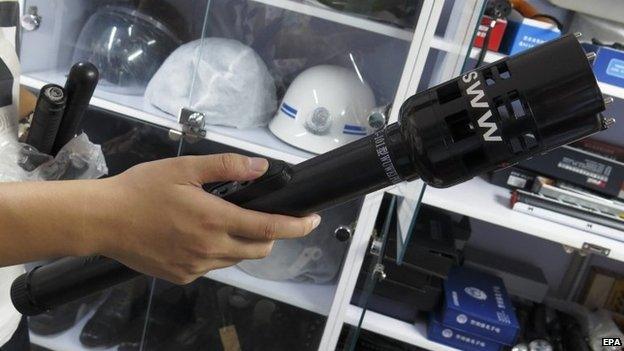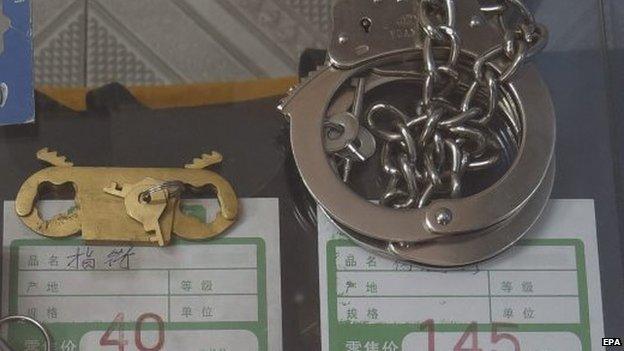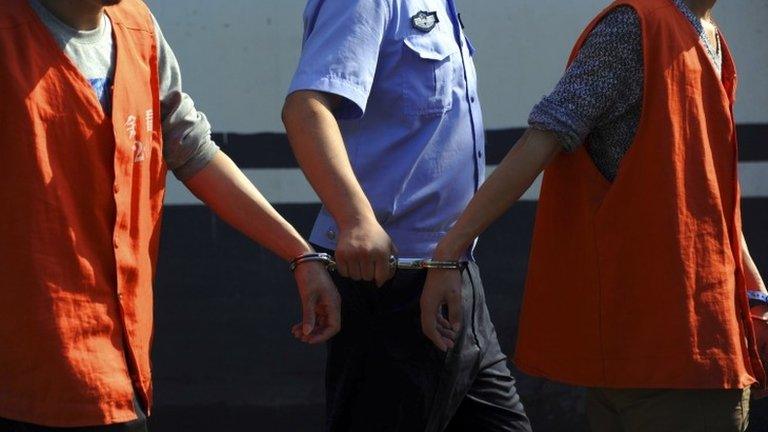Chinese firms exporting tools of torture, says Amnesty
- Published

Chinese companies are making goods such as this torch, which delivers an electric shock
A growing number of Chinese companies are exporting "tools of torture" such as electric shock batons and spiked metal batons, Amnesty International says in a report.
More than 130 firms were involved in the trade, which the rights group said, external was fuelling abuses in Africa and Asia.
Some items exported were "intrinsically cruel" and should be banned, it said.
Other items were being exported to nations with the risk that they would be used to commit violations.
"While some of the exports are no doubt used in legitimate law enforcement operations, China has also exported equipment that has inhumane effects, or poses a substantial risk of fuelling human rights violations by foreign law enforcement agencies," the report said.
Last year China's top court banned torture, but campaigners say abusing detainees remains widespread.
'Flawed system'
Amnesty said China was the only country known to manufacture spiked batons, which it said were "specifically designed as implements of torture".
Seven Chinese companies were advertising these goods, it said, while 29 were selling electric stun batons.
"These devices make it easy for security officials to apply extremely painful multiple shocks by hand to sensitive areas of the body including the genitals, throat, groin or ears without long-lasting physical traces," the group said.
Many more were advertising "abusive restraint devices" including weighted leg cuffs and rigid restraint chairs, it said.

Firms were selling to nations including Senegal, Egypt, Ghana, Cambodia and Nepal. One company selling thumb cuffs, restraint chairs, electric shock stun guns and batons said it had links with more than 40 African nations, the report said.
Ten years ago, Amnesty said, only 28 Chinese companies were involved in the trade.
"China's flawed export system has allowed the trade in torture and repression to prosper," said Patrick Wilcken, Amnesty's security trade and human rights researcher.
China should "fundamentally reform its trade regulations to end the irresponsible transfer of law enforcement equipment to agencies who will likely use it to violate human rights".
A European Union law, external banning the trade in equipment that could be used for torture came into effect in 2006, but Amnesty says loopholes need to be closed.
The US also regulates exports, though these laws need to be expanded, the report said.
But the report, which was jointly compiled with the UK-based Omega Research Foundation, said China was not the only state that should urgently review its regulations.
"The international trade in equipment intended for law enforcement is relatively unregulated by most states, especially in comparison to controls on transfers of most types of conventional military weapons and munitions," it said.
- Published21 November 2013
